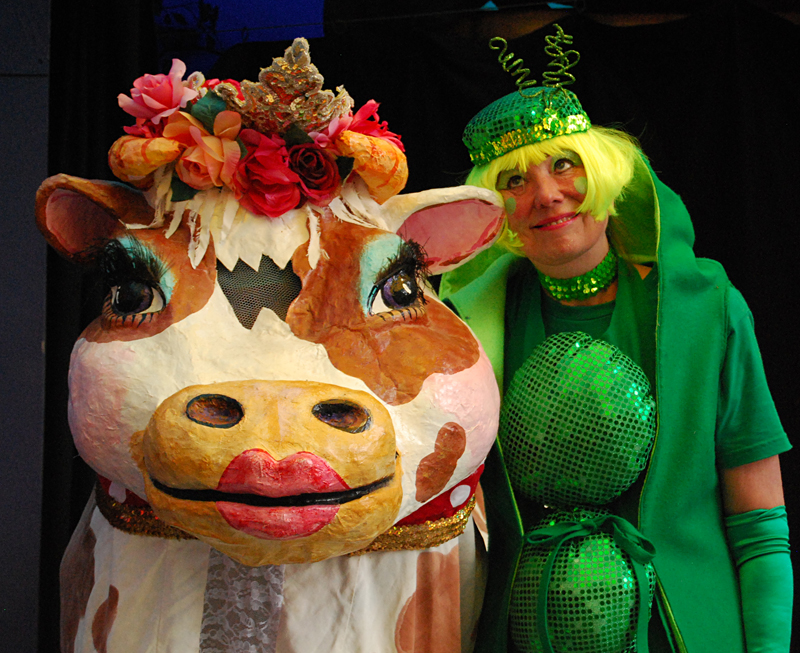If you ever wondered what the groundling experience was like in Shakespeare’s time—yelling back at the cast as though their characters were speaking to you, sitting on the floor—then Hale’s Palladium may be the place to find out. Of course, you’re welcome to treat the broad, accessible comedy as regular theater—sitting quietly, keeping your thoughts to yourself. But how often in life will you get rewarded for vociferously booing, cheering, advising, and contradicting characters? In this family-friendly production by Fremont Players, such interaction is the coin of the realm, and a section of the front is allotted for ground-sitters (mostly kids).
British pantomime shows (“pantos”) are traditionally performed around Christmas, with stock characters, music, cross-dressing, slapstick, buffoonery, light sexual innuendo, and variations on recognizable stories and fairy tales. Our guide to Sleeping Beauty is the good fairy Esmeralda (burly, mustached Simon Neale, in pink tutu and flip curls), whose rotten sister Formica (an excellent, hammy Debbie Tully) wants to be fairy to the royal house of Montague. Her ambitions thwarted, Formica puts the king’s daughter, Princess Perpetua (Lindsay Erika Crain), to sleep. Twenty-one years later, lonely Prince Rudy (the amusingly cast, power-voiced Katy Webber) commands Pea (Candace Reiter) to awaken Perpetua. Rudy’s hillbilly-highness mother Queen Bobbie-Jo (Flora McGill) demands a test to prove Perpetua’s royal blood, even while falling for razor-thin King Montague (Maque daVis). Some dunces and a giant two-person cow named Ophelia round out the population of the kingdoms visited.
Bright, sparkly costumes and swells of music by Kiki Hood—performed by the 10-piece Fremont Philharmonic Orchestra—give solace when you can’t hear the characters’ lines over the din. In the barnlike Palladium, dressed with Reiter’s painted curtain backdrops, large gestures are necessary to conquer the poor acoustics. It’s never hard to follow the thin but endearing plot, even under the rowdiest circumstances. Ad-lib contributions, as from the kid who commanded the orchestra “I need more cowbell!”, sometimes outpaced the script in their wit. As at a sporting event, the audience is half the show.








